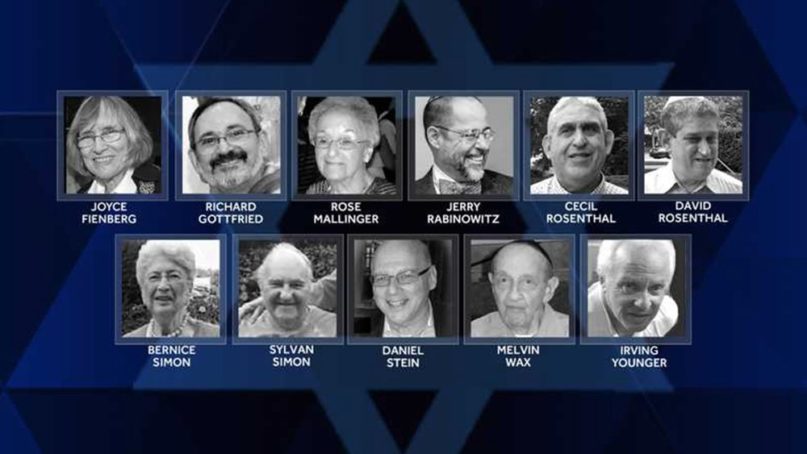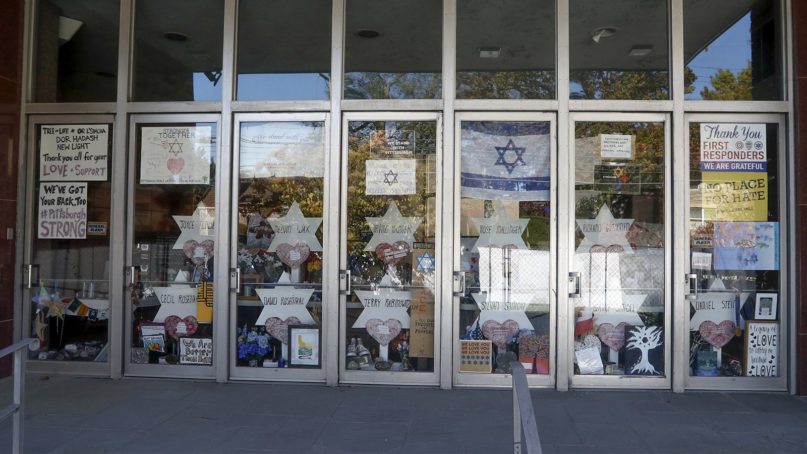(RNS) — “Olam hesed yibaneh.” The world will be built with lovingkindness.
I heard those words twice this week. On Sunday (Oct. 20) I heard them at Hoshana Rabbah services, the last day of Sukkot and the culmination of the Jewish “High Holy Days.”
The words, from Psalm 89, can be translated, “Forever, your kindness is confirmed” or “The world will be built with kindness.” On Hoshana Rabbah — “the great hosanna” — the words are recited as we finish the first of seven circuits around the synagogue, carrying willow branches that we beat on the floor as the crowning finish to our march.
Jews practiced these circumambulations again this week on Simchat Torah, as we end one Torah-reading cycle and begin anew. (We see them, too, in the Jewish wedding ceremony, when the bride traditionally circles a groom seven times.) Like many rituals, it is a way of actualizing a relationship, setting it at the very center of our physical being. It says that the Torah is at the center of our lives.
On this holiday of rejoicing with the Torah, Jews don’t study the Torah as we usually do but make the heavily decorated scroll an object for play and dance. Chaim Saiman, a professor of Jewish law at Villanova University, calls Simchat Torah an inversion of Jewish legal norms, a time when “the Torah is democratized and treated as a thing … held, touched, paraded around, danced with, hugged, and kissed, but not learned.”
I am usually joyful on Simchat Torah. I find the experience of dancing with words in my arms a powerful ritual. But this year, I was not in the mood to invert Jewish legal norms. I could only think about the 11 Jews killed in Pittsburgh, at the synagogue where my husband is a rabbi, and one in Poway, California. They died for making the Torah the center of their lives.

Victims of the attack on the Tree of Life Synagogue. Screengrab via WTAE Pittsburgh
I cried then, and cry now, to think about it. Their deaths have deepened my need to connect to Torah, to make sure that others know how valuable it is that people die for it. Yet I wonder whether I would be willing to die for it.
In the year since the murder of three of my fellow congregants at New Light and eight from other synagogues that met at Tree of Life, I have been writing every week about that week’s Torah portion. I’ve tried to go to synagogue more often during the week, especially Monday or Thursday when the scroll is read out loud, to work on connecting to its words by hearing them read publicly. I find I understand the text differently when I hear it chanted than when read from a printed text.
That is one way I have made sure the text of Torah is not something that remains on the page but goes out of it, circling its way into my life and activities.
Which brings me to the second time I heard “Olam hesed yibaneh,” on Wednesday (Oct. 23), as demonstrators greeted the president on his visit to Pittsburgh, in a protest called by the Jewish organization Bend the Arc. They were objecting to the president’s return a year after he visited in the wake of the Tree of Life shooting, having failed to denounce white nationalism and anti-Semitism. They took to the streets singing the words of Psalm 89 in an anthem written by Rabbi Menachem Creditor, hoping to force those in power to do justice and love kindness.
Hearing the same words at a political rally and at a solemn prayer service made me realize that these ancient words have a new urgency and a potency this year. Since the Oct. 27, 2018 attacks, our prayers no longer can remain in the realm of language; they are calls to action. We must act to build a world in which the ideals of hesed — of unbounded kindness — are our primary tools and building blocks, not the qualities of evil and hate, which are spewed out in too many in places and wield too much power.
In his own performance of his song a few years ago, Rabbi Creditor spoke of the importance of “putting hesed first.” To be able to do that in our prayers and our actions, to live in a way that is truly putting our values into the world, is to live a fully religious life.
I can’t bring back the 12 American Jews killed by anti-Semitic violence this year, but I can live my life with the urgency our tradition asks of us and encourage others as well to build the world, kindness first.
Editor’s note: the headline initially read ‘Tree of Life congregant’ rather than ‘New Life congregant.’ We apologize for the error.





